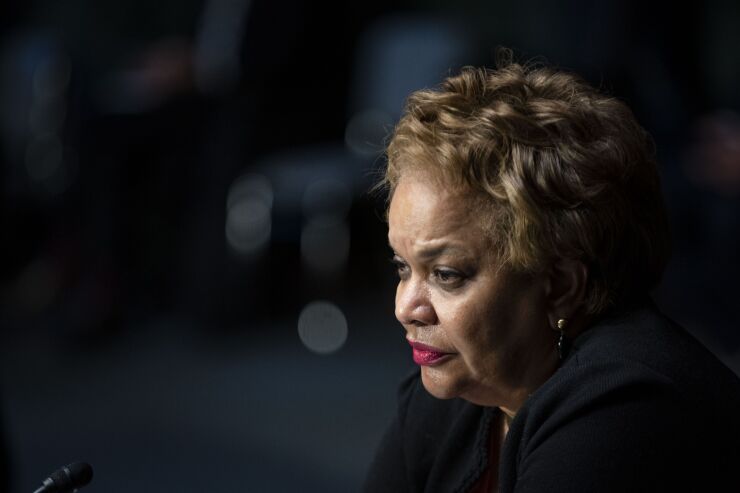
(Bloomberg) — US officials are looking at ways to give a broader swath of financial firms, including nonbank mortgage lenders, the ability to borrow from Federal Home Loan Banks.
The closed-door discussions, which are part of a regulatory review of the sprawling $1.4 trillion FHLB network, may be a first step to giving many more companies access to a coveted financial backstop now reserved mostly for banks. Any expansion would ultimately need congressional action, and would likely require firms to agree to more government oversight, according to people familiar with the matter.
Since their creation to boost home lending during the Great Depression-era, the FHLBs have become a general liquidity provider for banks. At the same time, their importance in housing finance has declined as nonbank mortgage firms have grown in importance.
Nonbank lenders Rocket Companies Inc. and UWM Holdings Corp. have climbed to the top of mortgage origination rankings in recent years. In 2022, nonbanks made up five of the top eight home lenders, according to data from Inside Mortgage Finance.
The ongoing FHLB review by the Federal Housing Finance Agency, the system's regulator, is being closely watched after this year's banking turmoil showed just how much banks had tapped the FHLBs for their liquidity needs. As part of that, the FHFA is also weighing limits on the ability of large lenders to the FHLBs as a financial backstop.
A representative for the FHFA, which is expected to release its findings next month, declined to comment.
Ryan Donovan, who leads the Council of Federal Home Loan Banks, said FHLBs were "eagerly anticipating" the results of the review, and that Congress should decide on any changes.
The FHLBs, which have implied support from the federal government, lent billions of dollars to Silicon Valley Bank, Signature Bank and First Republic Bank before they collapsed.
Supporters say the FHLB system serves as a key safety net during crises like the one earlier this year. However, critics question the purpose and usefulness of governmental-sponsored lenders with limited oversight.
Proposals to include mortgage firms in the system have circulated for years, and proponents say that granting them access would help strengthen FHLBs' connection to home loans.
The FHFA may stop short of explicitly calling for nonbank mortgages to be included, but open the door to that result by not suggesting such restrictions, said the people, who asked not to be identified discussing private deliberations and said no final decisions have been made.
"FHLB membership should be expanded," said Michael Bright, chief executive officer of the Structured Finance Association, whose members include mortgage firms.
Bright says he's skeptical that Congress will step in as needed. "Whenever I hear home loan bank reform, I really roll my eyes," he said. "FHFA has had a lot of friendly talk with not a lot of follow through in the past."
The Financial Stability Oversight Council, which includes the heads of the FHFA, the Federal Reserve and other regulators, has flagged mortgage originators and servicers among the types of firms that could pose a potential risk to financial stability.
The additional regulation firms could face in exchange for access is also a key unanswered question. An
Unlike banks, which are directly overseen by federal and state regulators, nonbank mortgage firms don't have a designated lender of last resort — meaning they can't tap the Fed or the FHLBs during a crisis.
In July, the firms were responsible for 79% of all new government-backed mortgages, according to
Fed economists argued in a 2018






